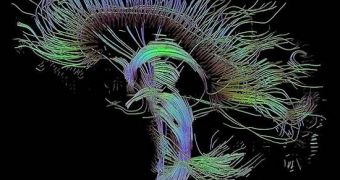Genes we inherit from our parents determine a very wide range of traits that we, as individuals, exhibit, but they are also responsible for making us prone to developing certain medical conditions over the course of our lifetime. Schizophrenia and the manic-depressive disorder are just two diseases of the brain that are favored by hereditary factors, but thus far experts have had no idea of how this happens exactly. Now, German researchers have found that the inherited genes affect the way in which certain portions of the human brain interact, and that this gives birth to the early conditions for the diseases.
The new study was conducted by experts at the Zentralinstitut fur Seelische Gesundheit, in Mannheim, the Heidelberg University, and the Bonn University. The team examined a number of people exhibiting a mutation in genes that had been previously linked to the two mental illnesses. The investigators also used 115 healthy test subjects as a test group. From the individuals exhibiting the genetic variant, most were predisposed to developing a bipolar malady known as the manic-depressive disorder.
“At this point, no-one had the slightest idea of what effect the genetic variant we had observed might have on the brain. We examined our test subjects in magnetic resonance tomographs, which reveal how the various areas of the brain interoperate,” the Director of the Zentralinstitut fur Seelische Gesundheit, Professor Dr. Andreas Meyer-Lindenberg, explained. The expert was also the one who proposed this research in the first place. Details of the finds are published in the May 1st issue of the journal Science.
“It is impressive that using modern methods we are able to trace such subtle genetic effects in the living brain,” the head of the Cerebral Imaging Study Group, Professor Dr. Peter Kirsch, added. The expert made it clear that people who tested themselves and found out that they had this genetic variant should not be worried that they would surely develop schizophrenia or bipolar impairment. That happens only in select circumstances, and not on a regular basis.
“This genetic variant plays only a minor role in these disorders,” ZSG expert Dr. Christine Esslinge said. There are numerous other factors that need to become involved, before one of these diseases begins to manifest itself.

 14 DAY TRIAL //
14 DAY TRIAL //